Oboro
Oboro
Reservations start this spring.
TK-04G / TK-04O
Size: W250_D250_H65[mm]
Material:
Free shipping within Japan
Couldn't load pickup availability
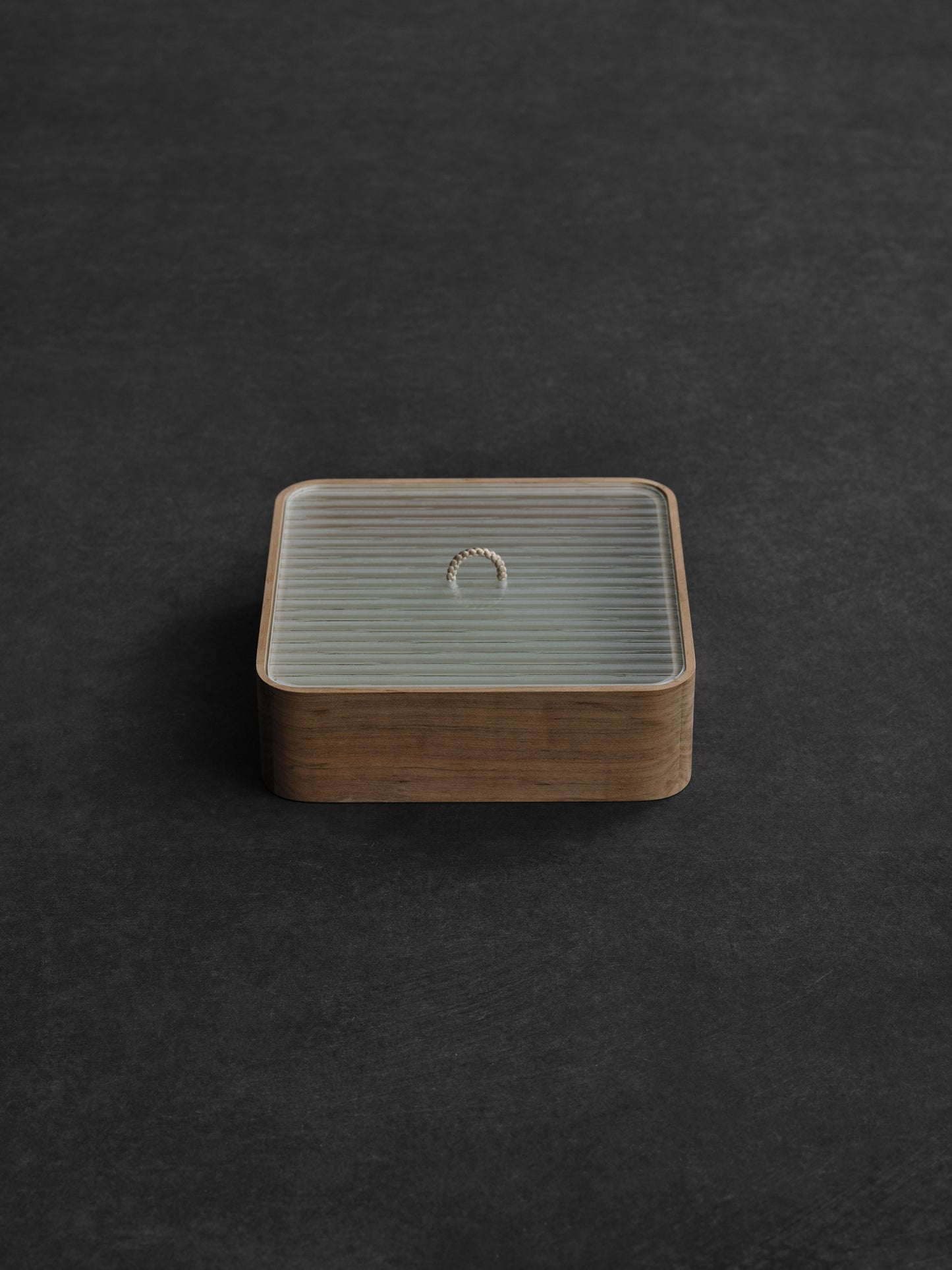
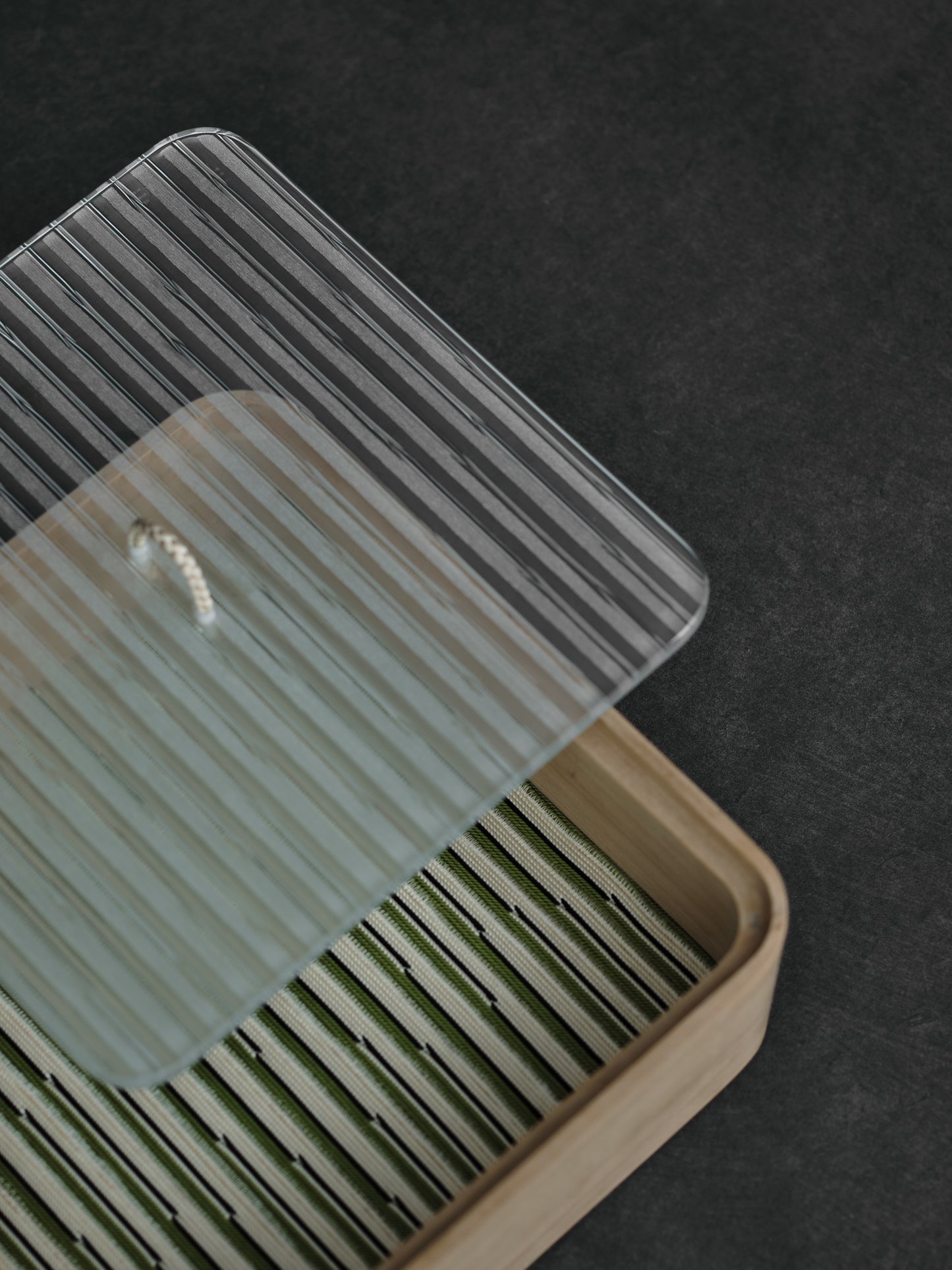

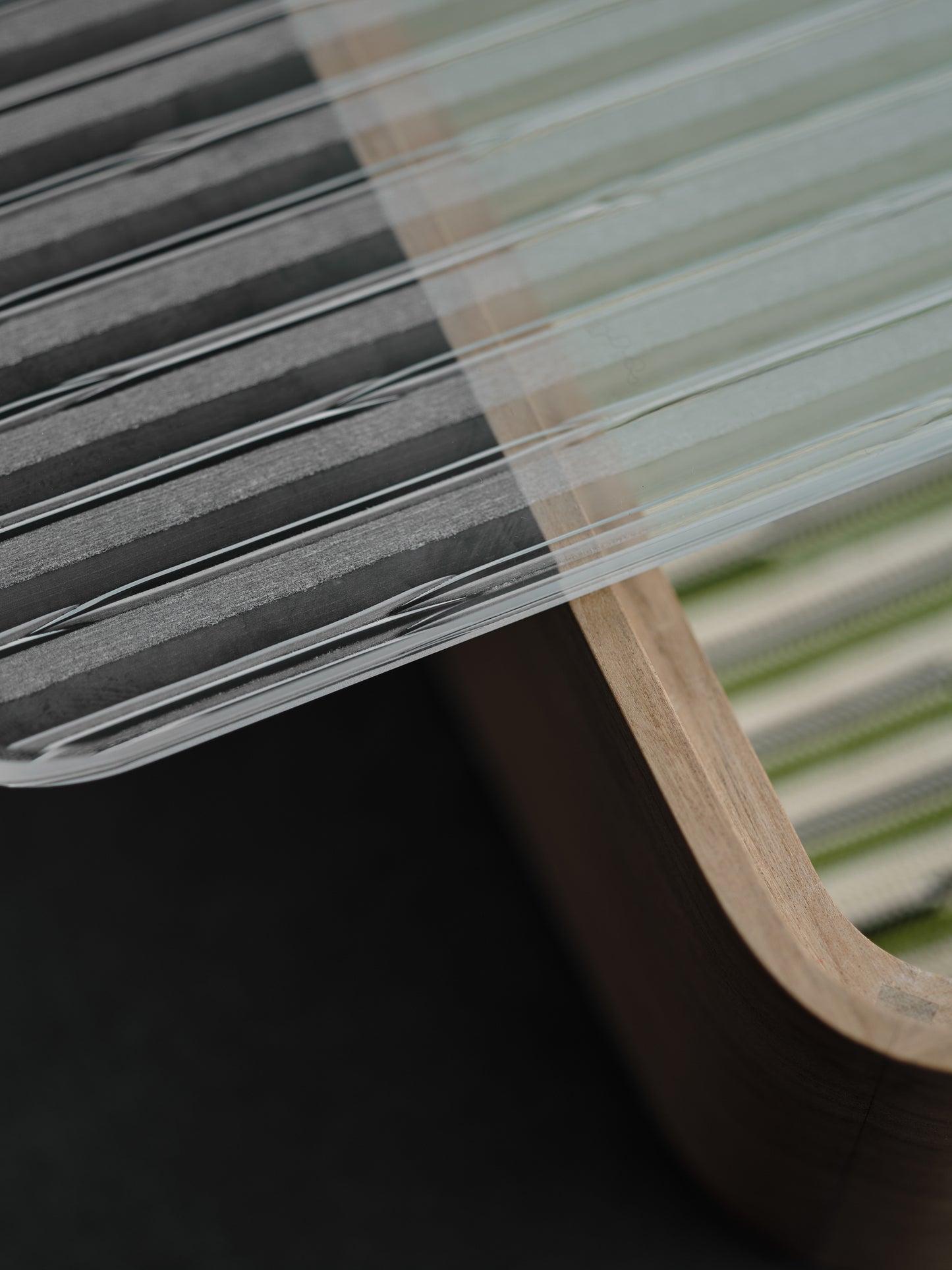


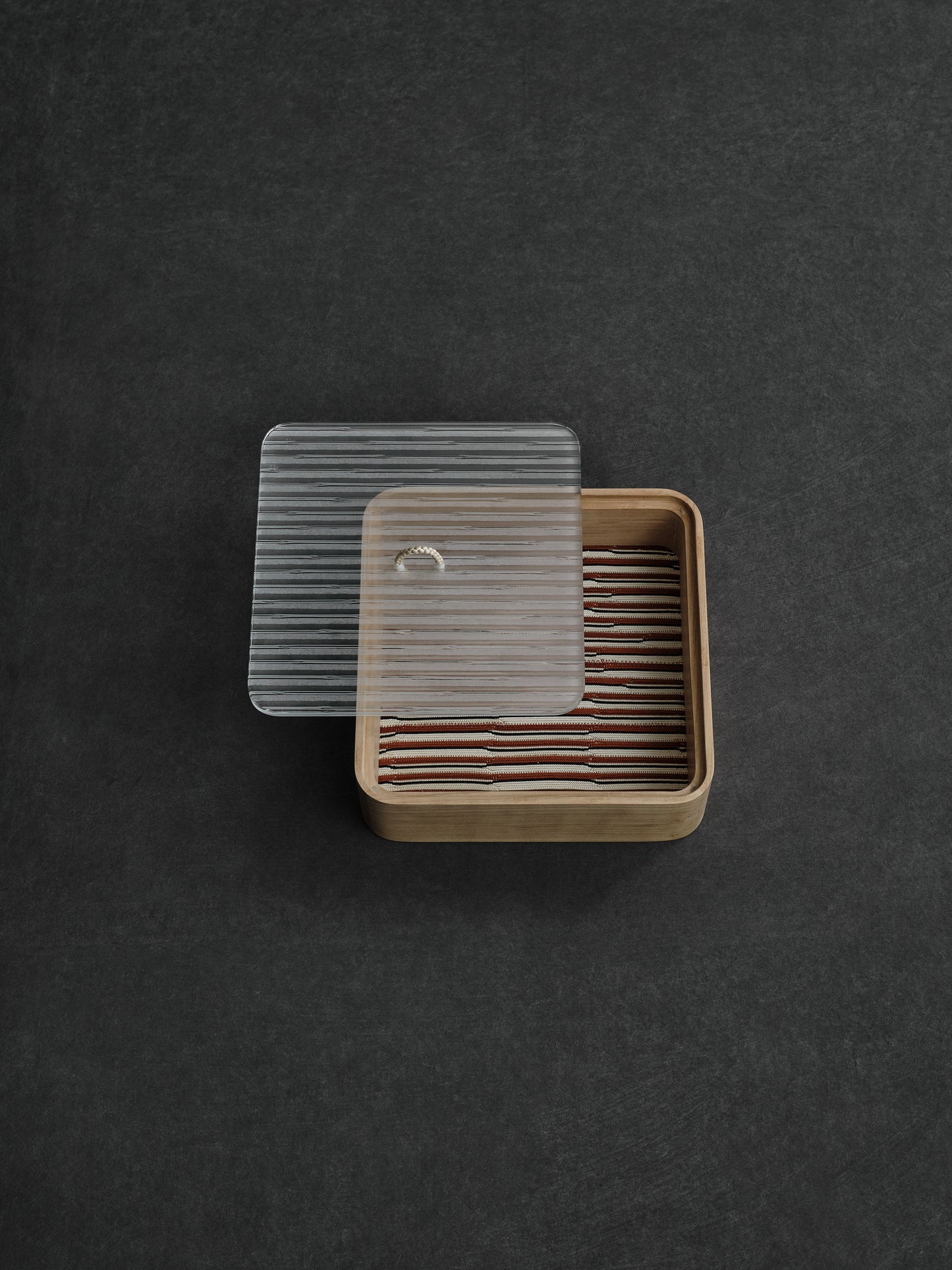
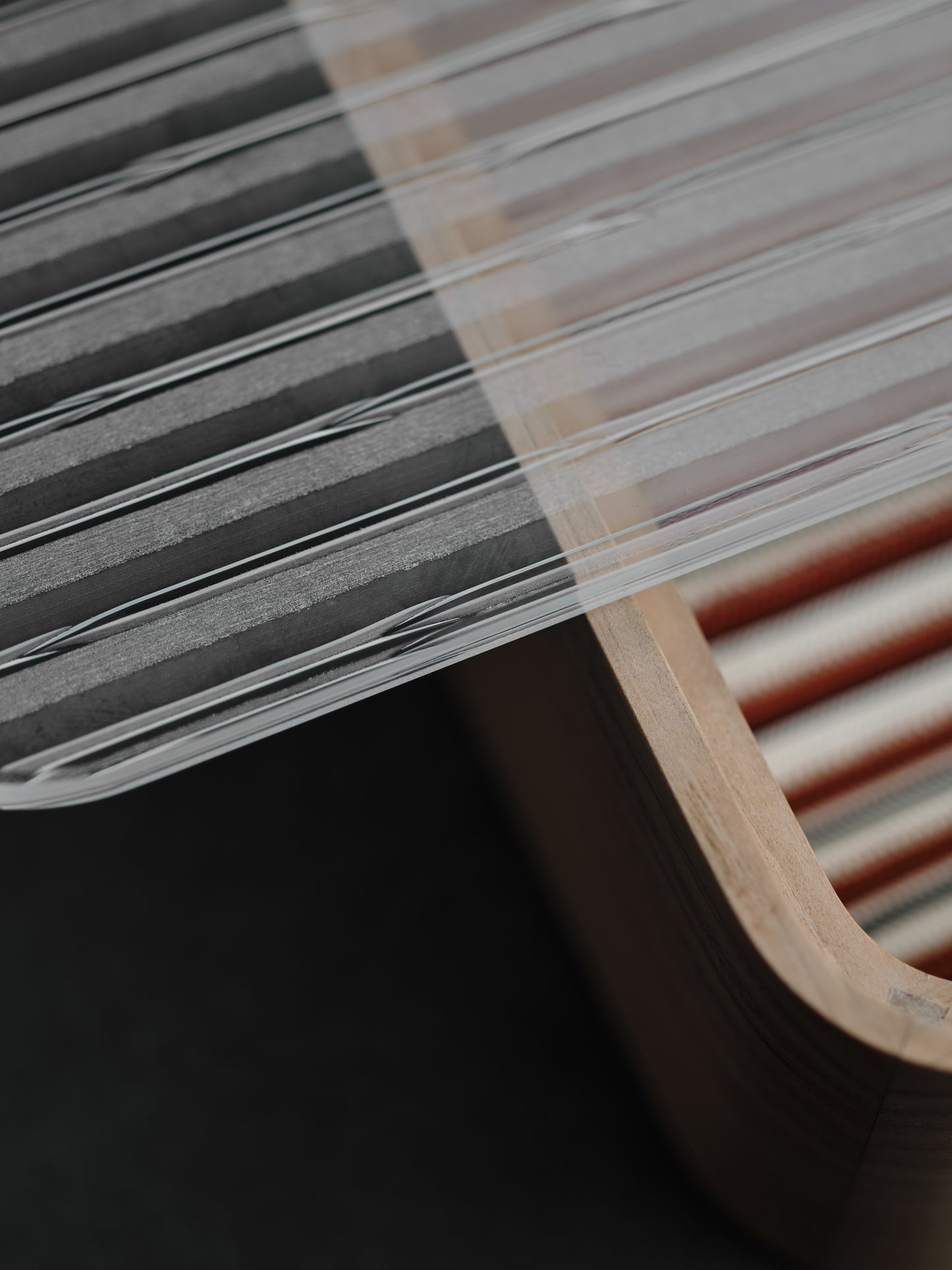
MATERIAL
Edo kiriko
Edo kiriko is a unique style of cut glassware that originated in the city of Edo (present-day Tokyo). Established during the Meiji period, when glass-cutting specialists from England visited Japan, the craft combines traditional Japanese patterns with the use of bold, vibrant colours. Passed down from one generation to the next, longstanding techniques are applied to drinkware, tableware and various other objects.
MATERIAL
Kumihimo
The history of Japanese kumihimo (braided cords) dates back more than 1300 years to the Asuka period, when the craft is believed to have arrived from China. Developed for use with armour, the cords are braided on specialised looms and possess an inherent robustness. During the seventeenth century, the use of kumihimo expanded to daily wear and accessories. Various techniques are used to create patterns that emphasise the silk’s alluring lustre.
MANUFACTURE
Shimizu Glass
Shimizu Glass is an Edo kiriko (cut glass) workshop founded in 1923. One of the few workshops dating back to the pre-war era, Shimizu Glass has been involved with production for a major glass tableware maker for many years, refining its cutting and polishing techniques along the way. More recently, the workshop has started making its own products and taking Edo kiriko outside the field of tableware, applying the craft to building materials and accessories. Key projects include the creation of decorative parts for the elevator walls at Tokyo Sky Tree.
MANUFACTURE
Ryukobo
Operating as a family business for more than 130 years, Ryukobo makes kumihimo braided cords in Nihonbashi, Tokyo, under master craftsman Takashi Fukuda. In addition to making kumihimo used to hold the obi sash of a kimono in place, the workshop is rare in that it undertakes all stages of production, from the dyeing of silk threads to design and weaving. Working on commissions from Japan’s imperial family, collaborations with international maisons and more, Ryukobo is constantly pursuing the possibilities of kumihimoo.









